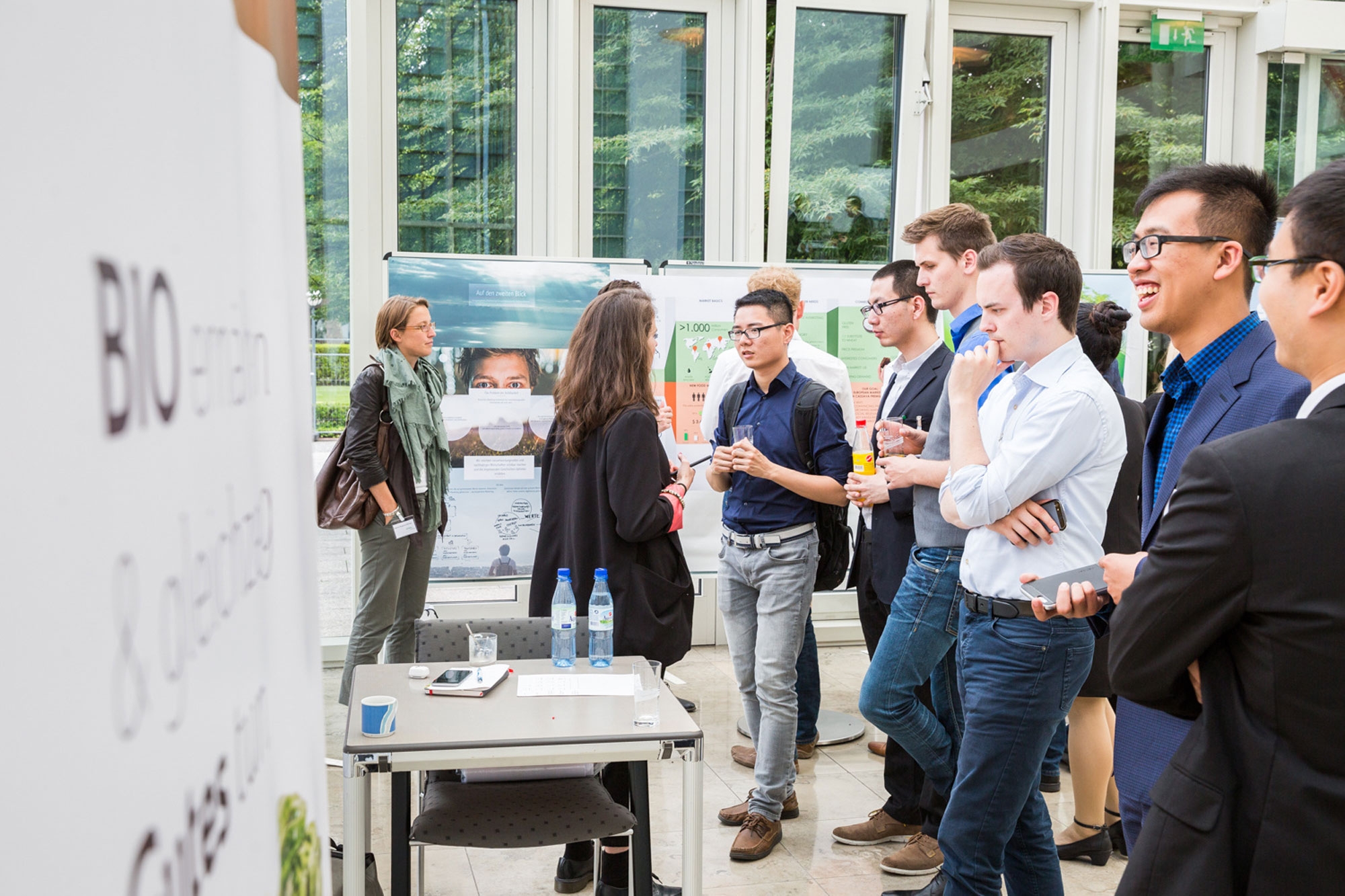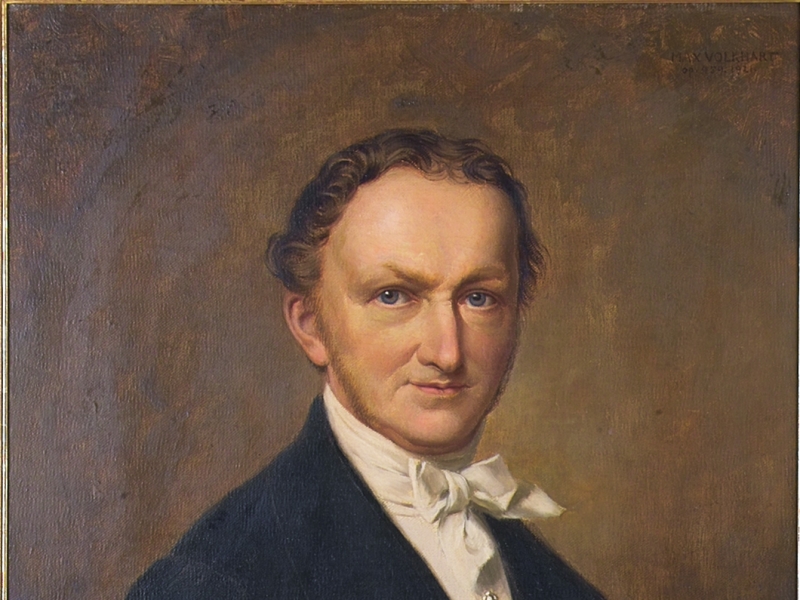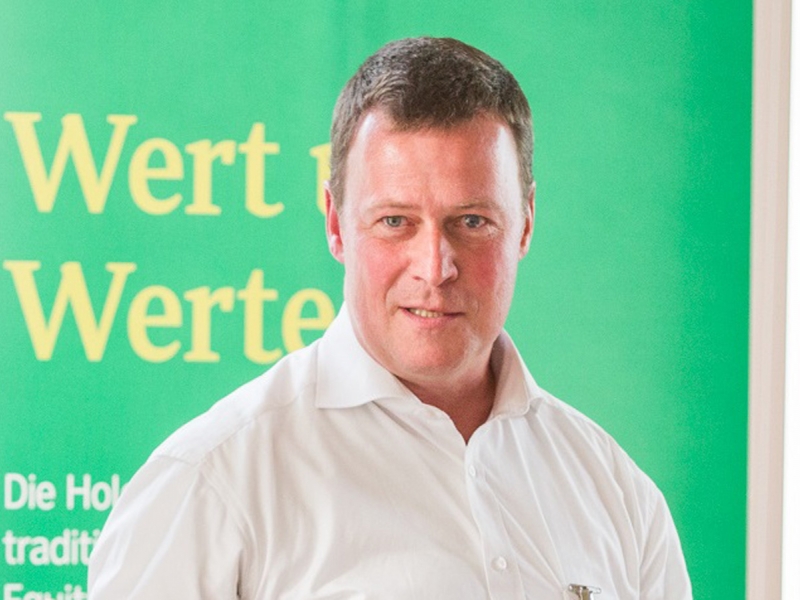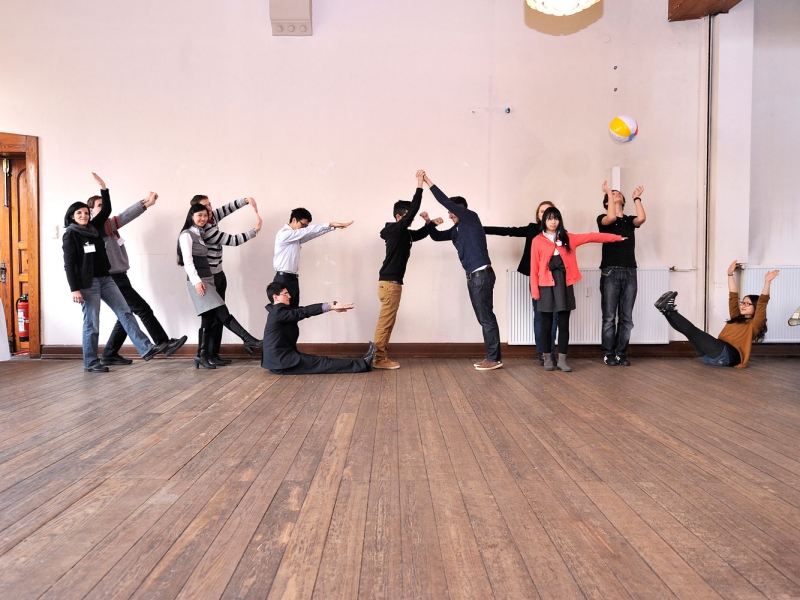
A Guiding Principle for Company and Foundation
The Honorable Merchant
For Haniel – and the foundation that is part of the family-owned company – the principle of the honorable merchant provides guidance for successful, long-lasting, and sustainable business, especially in today’s increasingly networked world.
While today a different number of stars in an online portal serve to evaluate goods or even give an indication of a product’s or a service’s quality, customers in the Middle Ages had only one source to rely on for information in this regard: the merchant, who praised his goods along with his own reputation. But these merchants were often strangers to the people they visited on their travels, and there were no other methods of comparison available. The result was that potential customers’ lack of trust in the merchant placed significant strain on business.
Merchant guilds were able to help build trust, and they also established principles of good entrepreneurial practices. Anyone who joined one of these organizations also had to conduct themselves in accordance with the organization’s code. Merchants were thus able to boast the good reputation of their guild and gain their customers’ trust more quickly as a result. Anyone found in violation of these values and principles was ostracized.
And there was something else: education and training were prerequisites for an occupation. In the societal structure of the Middle Ages, the merchant was therefore often not only a businessman, but also an explorer and historian. Marco Polo may come to mind in this regard. Additionally, he made efforts to improve the general well-being in free cities. Thus he was well respected among the citizens, thanks in particular to the virtues of the honorable merchant. To this day, these values include hard work, discipline, humility, integrity, honesty, decency, and farsightedness.
© HanielFranz Haniel founded a school in Duisburg-Ruhrort in 1856 and established a fund for parents of bright children who could not afford tuition.
Nearly 200 years ago, Franz Haniel – grandson of the company’s founder – made his decision based on virtues such as those. With the introduction of the first corporate health fund in Germany, the construction of employee settlements, and the foundation of a school in Duisburg-Ruhrort, he made good on his obligations to his employees and his community without losing sight of his business objectives. These things were not mutually exclusive, but rather complemented one another: for Haniel, healthy workers were necessary to be able to provide consistently high-quality service. But anyone who had to walk a great distance to work in the mornings or who was always sick was not doing himself or the business any favors.
Creating value by honoring values – that is the basis of Haniel’s self-image to this day. The virtues of the honorable merchant taken up by Franz Haniel still play an important role in the company. As the director of partners and sustainability, Jutta Stolle ensures that these principles are observed and developed within the company as part of corporate responsibility. Moreover, the foundation is a valuable institution through which Haniel can act on its social responsibility and, under the leadership of executive director Dr. Rupert Antes, develop programs in the fields of promoting future generations and creating educational opportunities.
How Haniel embodies, conveys, and develops the principles of the honorable merchant has been demonstrated in the everyday work of both the company and the foundation for 260 years: strengthening expertise and looking beyond horizons; keeping sights set on success without losing sight of employees or society; promoting strengths in such a way as to also improve weaknesses; and building on traditional values without ignoring the signs of the times.
© Alexander MuchnilkThe foundation is a valuable institution through which Haniel can act on its social responsibility and, under the leadership of executive director Dr. Rupert Antes, develop programs in the fields of promoting future generations and creating educational opportunities.
Strengthening Expertise – Looking beyond Horizons
Comprehensive training expands economic expertise. Today, this is the guiding principle for the support programs of the Haniel Foundation – for example at Harvard University in Cambridge, Massachusetts. “The ‘Moral Leader’ course is one of the events that has especially stuck with me. The lecture addressed moral dilemmas and decision-making processes of literary and historical figures such as Antigone, Othello, and Harry Truman,” explains stipendiary Hauke Rapold, describing his participation in the course at the Harvard Business School in Boston.
Topics related to the humanities and social sciences also enjoy high esteem at one of Europe’s most important business schools: the University of St. Gallen (HSG) in Switzerland. As part of the so-called context program, business majors spend one-fourth of their time with courses in sociology, psychology, art, and literature. The Haniel Foundation has supported this program since 2001 because it also reflects the principle of the honorable merchant.
This connection of economic and socioeconomic perspectives is firmly rooted in the Haniel family-owned company, where it is a fixed part of the corporate culture. Jutta Stolle explains, “When we acquire companies, the contractual agreements include not only hard figures, but also soft factors. Our compliance model does consist of legal questions, but also of ethical and social ones.”
Success without Losing Sight of Society
The value-oriented businesspeople of the future want to be profitable in a conscientious way, all without losing sight of the best interests of society. They are therefore rejecting a model of entrepreneurship that has suffered greatly from economic crises and corporate scandals. For this reason, the Haniel Foundation intends to prove that economic success and the greater good are not mutually exclusive. That is why various aspects such as creativity, commitment, and sustainability are crucial for the foundation in choosing its stipendiaries. “An applicant’s social involvement outside of their studies is important to us,” says Rupert Antes, executive director of the Haniel Foundation.
Frederic Rupprecht is someone who meets these criteria. The 24-year-old received support from the foundation for his postgraduate studies in public policy at the Harvard Kennedy School in Cambridge, Massachusetts. Working for the start-up betterRe!, of which he is a cofounder, Rupprecht is already putting the knowledge he acquired at Harvard to good use for the protection of the environment and sustainability. With his company, he hopes to turn the environment-harming battery industry inside out and increase the use of rechargeable batteries by increasing their user-friendliness. “People often assign a high value to short-term benefit without, however, truly being able to assess the negative effects, which don’t occur until some point in the future. Especially in today’s world of climate change, I would like to change this behavior in a corporate context,” says the young entrepreneur.
 Rupprecht wants to achieve more than just profits with betterRe! – that is something his start-up has in common with Haniel, one of Europe’s largest companies. There have been instances in the past where Haniel decided against acquiring a company because there were too many question marks regarding ecology. “The consequences of potential ecological missteps was more important to us than the prospect of becoming the number one in a particular field,” says corporate responsibility officer Jutta Stolle (left) with conviction. “Of course we are first and foremost a business that has to be profitable,” she explains, “but not at all costs.”
Rupprecht wants to achieve more than just profits with betterRe! – that is something his start-up has in common with Haniel, one of Europe’s largest companies. There have been instances in the past where Haniel decided against acquiring a company because there were too many question marks regarding ecology. “The consequences of potential ecological missteps was more important to us than the prospect of becoming the number one in a particular field,” says corporate responsibility officer Jutta Stolle (left) with conviction. “Of course we are first and foremost a business that has to be profitable,” she explains, “but not at all costs.”
The family-owned company’s commitment clearly shows one thing: corporate responsibility in the tradition of the honorable merchant is not about companies carrying out good deeds that have nothing to do with the core business. If the creation of value and corporate responsibility are completely separate, that suggests that the business cannot be operated both responsibly and profitably at the same time. However, corporate responsibility does not mean general charitableness, but rather creating value and values through targeted investments that are both economically sound and useful to society.
Promoting Strengths in Such a Way as to Also Improve Weaknesses
At Haniel, the thinking has always been done in generations rather than in quarters. As such, Franz Haniel founded a school in Duisburg-Ruhrort in 1856 and established a fund for parents of bright children who could not afford tuition. He wanted to firmly anchor the idea that education pays for itself as a long-term investment in the values of Haniel: investing in education does not bring about instant results, but it does secure long-term success.
And the city of Duisburg has special meaning for Haniel still today. “This is our home. Our roots are here. This is where we grew up. We were given a lot here and that’s why we want to give a lot back,” says Jutta Stolle in response to the question of why the company and the foundation are so committed to this community. The company’s immediate surroundings have a significant impact on commercial success. Not much has changed in that respect since the time of the honorable merchant of centuries past. The philosophy of social responsibility for the community is therefore passed along to the business divisions around the world.
Following their stays abroad, stipendiaries come back to us over and over again with innovative solutions to social problems, as well as ideas for new social enterprises. Some of them are even implemented in education.
Dr Rupert Antes, executive director of the Haniel foundation
For its part, the foundation takes a two-dimensional approach to the topic: on the one hand, locally in the form of commitment to educational opportunities in Duisburg-Ruhrort and, on the other hand, globally with a focus on travels abroad for supported stipendiaries. Ultimately, the young managerial talents supported by the foundation also have the education opportunities of disadvantaged youth in mind, which the foundation’s executive director Rupert Antes knows from experience. “Following their stays abroad, stipendiaries come back to us over and over again with innovative solutions to social problems, as well as ideas for new social enterprises. Some of them are even implemented in education.”
As an example he mentions Elisabeth Heid, who studied public administration at the Harvard Kennedy School as part of the McCloy scholarship program supported by the foundation. She is a cofounder of the Teach First Deutschland educational initiative, which aims to help break down educational barriers for disadvantaged children and young people. The foundation thus has access to a network of alumni contacts when it is in search of partners for its projects in the field of education. This is how Teach First Deutschland became involved in the “Bildung als Chance” (“education as an opportunity”) program in the Duisburg area, which was created by the Haniel Foundation.
Building on Traditional Values without Ignoring the Signs of the Times
Hard work, discipline, humility – these ideas, which were described as the virtues of the honorable merchant at the outset, may sound a bit old-fashioned. But – in the age of Generation Y – they are all the rage. “Today, many young people place more importance in which company they work for,” says Rupert Antes. The foundation advocates for those among them who want to be a part of societal change and who do not shy away from responsibility. Solutions to social challenges that reflect the trends of digitalization and globalization will only be found if there are entrepreneurs in the future who take on tasks and responsibility on behalf of society.
This will be the bridge between past and future. Just like for the honorable merchant of times past, today, moral values form the basis of a company’s long-term success. These values are easily said, but – under the pressures of time, expense, and competition in a globalized economy – not so easily realized. It requires profound expertise, the acquisition of which the Haniel Foundation places at the center of its promotion of future generations.
“Aside from digitalization, globalization is surely the greatest challenge for companies,” says Jutta Stolle. When networks grow larger and larger, government regulation measures lose their ability to make an impact. This makes it all the more important for businesses to behave in a responsible manner in accordance with the principles of the honorable merchant. By doing so, companies create an important basis for the long-term and sustainable success of their business.





